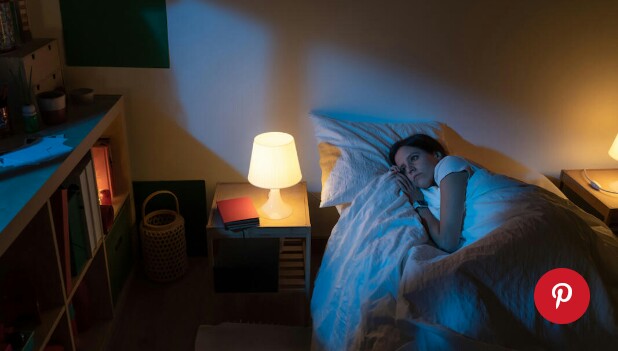INDONESIAKININEWS.COM - It’s easy to get in your own way when it comes to falling asleep. Because sleep requires as much of a cognitive do...
Because sleep requires as much of a cognitive downshift as it does a physical one, getting caught up in racing thoughts or even worrying about getting to sleep can sabotage your best efforts at doing so.
Thankfully, there are a few simple mental tricks you can do in order to fall asleep more easily—even when your brain seems to have other plans.
In an ideal world, you'd be in a worry-free state at bedtime, says sleep specialist Rebecca Robbins, PhD, sleep expert at sleep-tech company Oura.
But for plenty of folks, that’s just aspirational. “When people struggle to fall asleep, it’s very often due to a busy mind,” she says.
“One reason for that is our busy days do not always allow time for thinking and reflecting on various events, and by the time they come to a halt near bedtime, we’re suddenly consumed by thoughts from the day."
That’s why sleep experts so often recommend practicing a calming pre-bed ritual, like meditation or a breathing exercise, in order to signal to your mind that it’s time for rest.
But sometimes, that’s still not enough to prevent racing thoughts once your head hits the pillow or to keep stress or anxiety at bay.
In those scenarios, it can be useful to have a few mental tricks up your sleeve that help you fall asleep despite it all.
Below, sleep experts share three simple techniques for turning your brain to “off” mode and allowing yourself to fall asleep when that’s all your body so desperately wants.
3 mental tricks to fall asleep when your mind is keeping you awake
1. Carve out time in the evening to worry
If worrying in bed is what’s keeping you wired, create time and space to worry while not in bed—so that your brain begins to associate worrying with a separate activity that occurs before sleep.
“This just means taking a few moments before bedtime to write down any worries that are on your mind, whether they are small or large,” says Dr. Robbins.
You can also write down the tasks or projects that are stressing you out (as a to-do list for the next day), so that they’re less likely to haunt you that night.
“The practice of writing your worries down on paper can significantly improve your ability to relax and ease off to sleep.” —Rebecca Robbins, PhD, sleep specialist and sleep expert at Oura
Not only does this practice help distance the act of worrying from something you do as you’re trying to sleep, but also, it creates cognitive space between you and your own worries.
“The practice of writing them down on paper—instead of allowing them to stay in your mind—can significantly improve your ability to relax and ease off to sleep,” says Dr. Robbins.
2. Use paradoxical intention
If you could somehow forget about your strong desire to fall asleep, wouldn’t sleep come to you more easily? That’s the reality upon which paradoxical intention is based.
This cognitive behavioral therapy technique just asks you to get into bed, leave your eyes open, and focus on staying awake, instead of falling asleep, says Dr. Robbins, which can be helpful if you’ve developed any kind of performance anxiety around sleeping.
As you face your fear directly—that is, not sleeping—the pressure to sleep begins to slowly lessen over time, says clinical psychologist and sleep specialist Shelby Harris, PsyD, author of The Women’s Guide to Overcoming Insomnia.
Without that pressure to sleep, it's ironically all the more likely that sleep will happen naturally.
To be clear, the goal with paradoxical intention isn’t to do activities or move around your house in an effort to actually stay awake, says Dr. Harris.
So, this mental trick isn’t great for anyone who’s super concrete in their thinking, she says.
“It’s just about staying in bed and saying to yourself, ‘I’m going to stay awake,’ without doing anything else or looking at any screens.”
The more you try to do this one thing, the more likely it is for the opposite to eventually happen by default.
3. Practice the "cognitive shuffle"
The kind of racing thoughts that tend to crop up pre-sleep can put your brain in an alert, analytical state not conducive to sleep.
To shift out of that state, though, you may need a real distraction—one that’s strong enough to draw your attention away from anxious thoughts, but not so stimulating that it keeps you awake just the same.
Enter: cognitive shuffling, an imagination technique created by Luc Beaudoin, PhD, an adjunct professor of cognitive science at Simon Fraser University, as part of his development of the mySleepButton app.
Source: wellandgood














